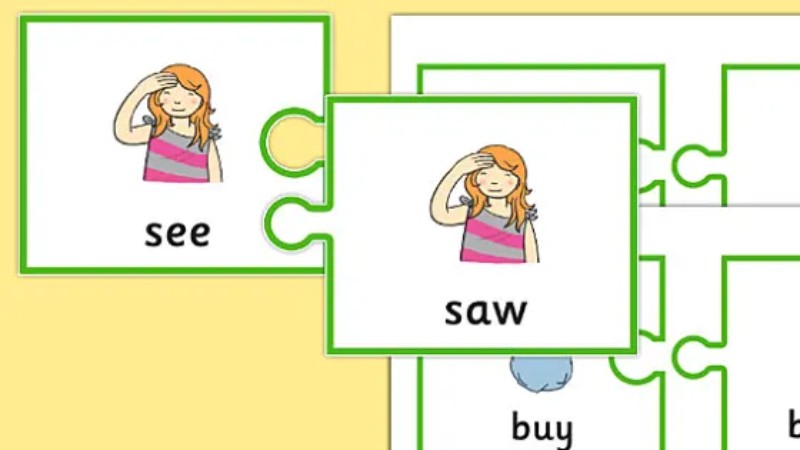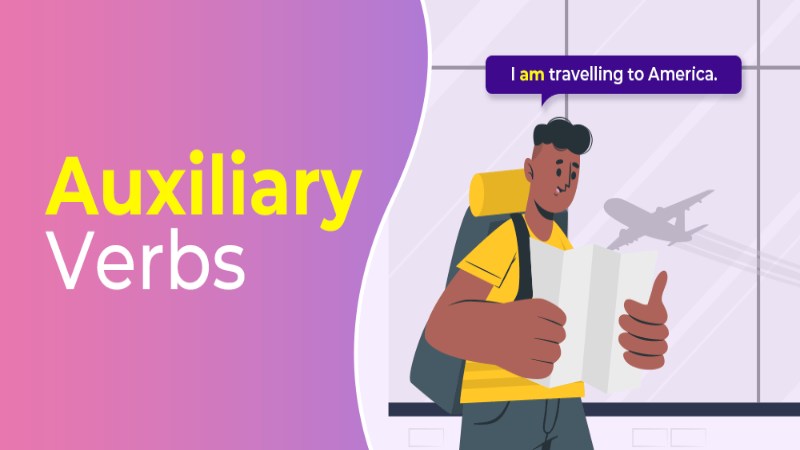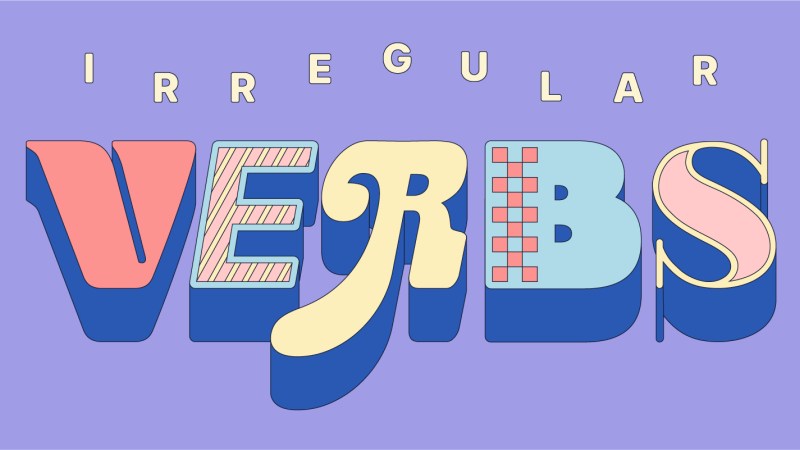
過去簡單式規則動詞的變化
要使句子成為過去簡單式通常要在規則動詞後面加上ed。
They often watch a film on Sunday. ⇒ They watched a film last Sunday. 上星期日他們看了電影。
She lives in London. ⇒ She lived in London in the 80s. 她在80年代住在倫敦。
規則動詞的拼字
| 不定詞 | 過去式 | 拼字 |
| watch play | watched played | 通常加ed |
| like arrive | liked arrived | -e後面加-d |
| Study try | studied tried | 在子音加y之後去 -y加 -ied |
| shop rob | stopped robbed | 子音加母音加子音,變成雙子音加 -ed |
什麼時候要雙子音?
當動詞結束於子音 + 母音 + 子音時,則要變成雙子音。這個規則在當動詞只有一個音節時絕對成立。
- stop ⇒ stopped
- plan ⇒ planned
- shop ⇒ shopped
- rob ⇒ robbed.
若動詞為兩個音節,只有在當重音出現在最後一個音節時才需要變成雙子音。
- reFER ⇒ referred
- preFER ⇒ preferred
- reGRET ⇒ regretted
但當重音不是在最後一個音節時便不需要變成雙子音。
- VIsit ⇒ visited
- ANswer ⇒ answered.
過去簡單式不規則動詞變化
有些動詞為不規則動詞所以要變成過去簡單式不是加 -ed。
英文中常見的不規則動詞:
| be | was/were | They were at school yesterday. | 他們昨天在學校。 |
| begin | began | At the end of the scene, we began to cry. | 在場景結束時,我們開始哭泣。 |
| break | broke | I broke my arm in an accident. | 我在一次事故中摔斷了手臂。 |
| bring | brought | Who brought you here? | 誰把你帶到這裡來的? |
| buy | bought | We bought a new car last week. | 我們上週買了一輛新車。 |
| do | did | I did some shopping. | 我做了一些購物。 |
| drink | drank | He drank a lot of water after the match. | 賽后他喝了很多水。 |
| drive | drove | We drove to the airport. | 我們驅車前往機場。 |
| eat | ate | We ate paella by the beach. | 我們在海邊吃了海鮮飯。 |
| find | found | I finally found the keys. | 我終於找到了鑰匙。 |
| fly | flew | We flew to Hongkong last Spring. | 我們去年春天飛往香港。 |
| forget | forgot | I forgot the keys in the hourse. | 我忘記了小時的鑰匙。 |
| get | got | She got a lot of gifts for her birthday. | 她的生日收到了很多禮物。 |
| give | gave | I was cold and he gave me a jacket. | 我很冷,他給了我一件夾克。 |
| go | went | I went to work by bus yesterday. | 我昨天乘公共汽車去上班。 |
| have | had | I had a lot of toys as a child. | 我小時候有很多玩具。 |
| know | knew | We knew that he was special immediately. | 我們立刻就知道他很特別。 |
| lose | lost | He lost his wallet at the bus station. | 他在公交車站丟了錢包。 |
| make | made | They made a cake for the party. | 他們為聚會做了一個蛋糕。 |
| meet | met | I met my wife at a wedding. | 我在婚禮上認識了我的妻子。 |
| pay | paid | She paid for the drinks. | 她付了酒錢。 |
| put | put | I put the ice cream in the freezer. | 我把冰淇淋放在冰箱裡。 |
| read | read | I read an interesting article yesterday. | 我昨天讀了一篇有趣的文章。 |
| run | ran | When the fire started, we ran. | 火開始時,我們跑了。 |
| say | said | She said something in his ear. | 她在他耳邊說了些什麼。 |
| see | saw | We saw a very strange man in the street. | 我們在街上看到一個很奇怪的人。 |
| sell | sold | He sold me his old car. | 他把他的舊車賣給了我。 |
| send | sent | People sent lots of letters in the past. | 過去人們寄過很多信。 |
| sing | sang | Everybody sang “Happy Birthday” to her. | 每個人都為她唱“生日快樂”。 |
| sit | sat | We sat on the sand and looked at the sea. | 我們坐在沙灘上,看著大海。 |
| sleep | slept | I only slept three hours last night. | 我昨晚只睡了三個小時。 |
| speak | spoke | We spoke to our kid’s teacher last week. | 上週我們和孩子的老師談過了。 |
| spend | spent | We spent a lot of money during our last trip. | 我們在上次旅行中花了很多錢。 |
| swim | swam | He swam in the sea in June. | 六月,他在海裡游泳。 |
| take | took | Somebody took my things. | 有人拿走了我的東西。 |
| teach | taught | She taught me how to play the drums. | 她教我如何打鼓。 |
| tell | told | I told him to go home. | 我告訴他回家。 |
| think | thought | We thought you were dead. | 我們以為你死了。 |
| understand | understood | I understood her decision. | 我理解她的決定。 |
| wear | wore | She wore a beautiful red dress at the patry. | 她在帕特里穿著一件漂亮的紅色連衣裙。 |
| win | won | They won the match. | 他們贏得了比賽。 |
| write | wrote | I wrote a letter to the manager. | 我給經理寫了一封信。 |
過去簡單式時的使用
表示過去完成的動作或狀態
過去簡單式可以用來說明過去完成的動作或狀態,我們通常會加上過去時間來表達: yesterday, yesterday afternoon, last night, last week, three days ago, four years ago, 等。
She answered the question yesterday. 她昨天回答了問題。
They were a good team. 他們是一個好團隊。
過去重複的動作
過去簡單式可以形容在過去習慣或重複的動作,但現在已經沒有繼續。通常會加上副詞或頻率來表達(often, always, every day等)。
When I was a child, I went to the cram school every day. 在小時候,我每天都會去補習班。
In school, I often went jogging in the morning. 在學校時,我通常會在早上去慢跑。
規則和不規則動詞 – 練習題



Comments